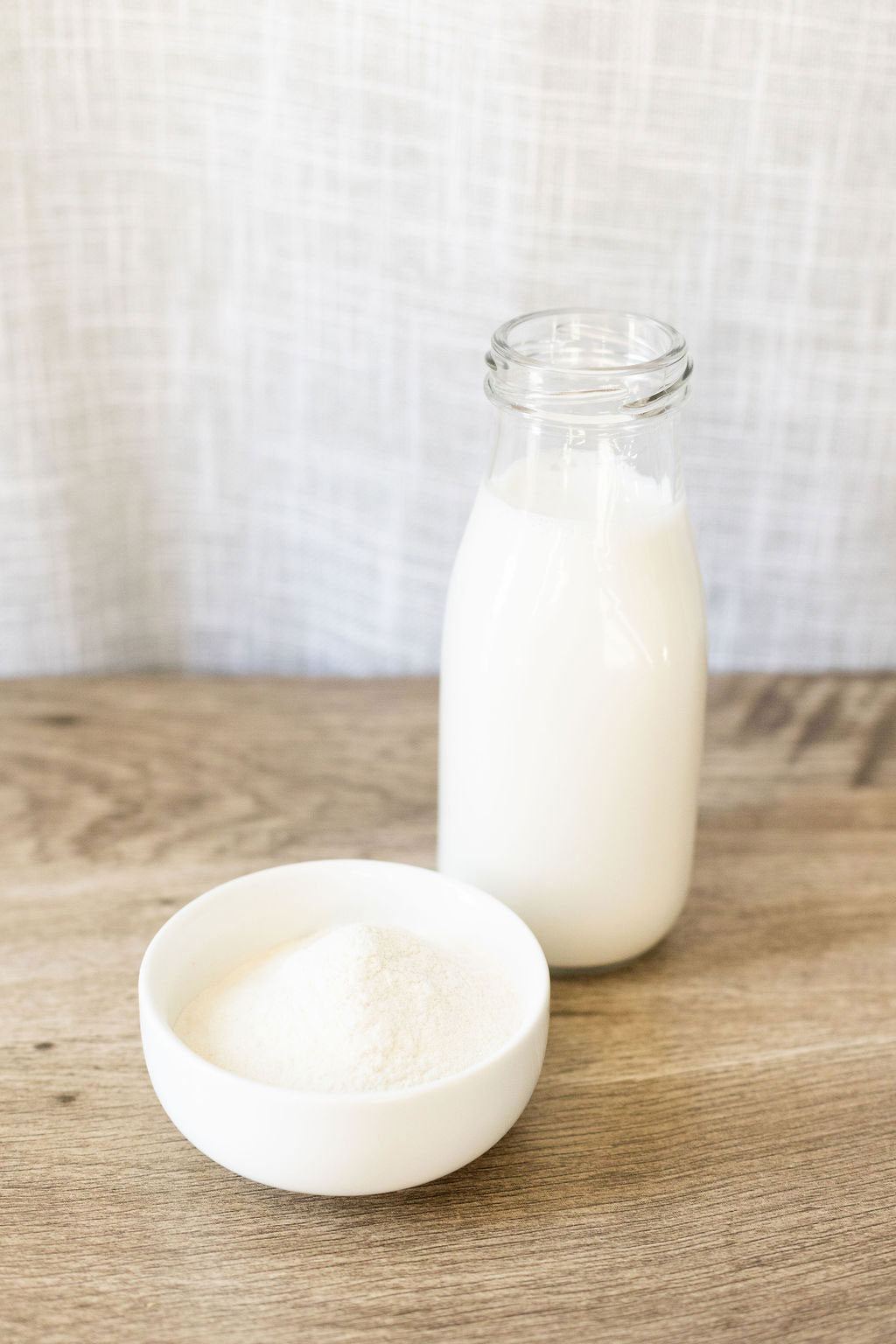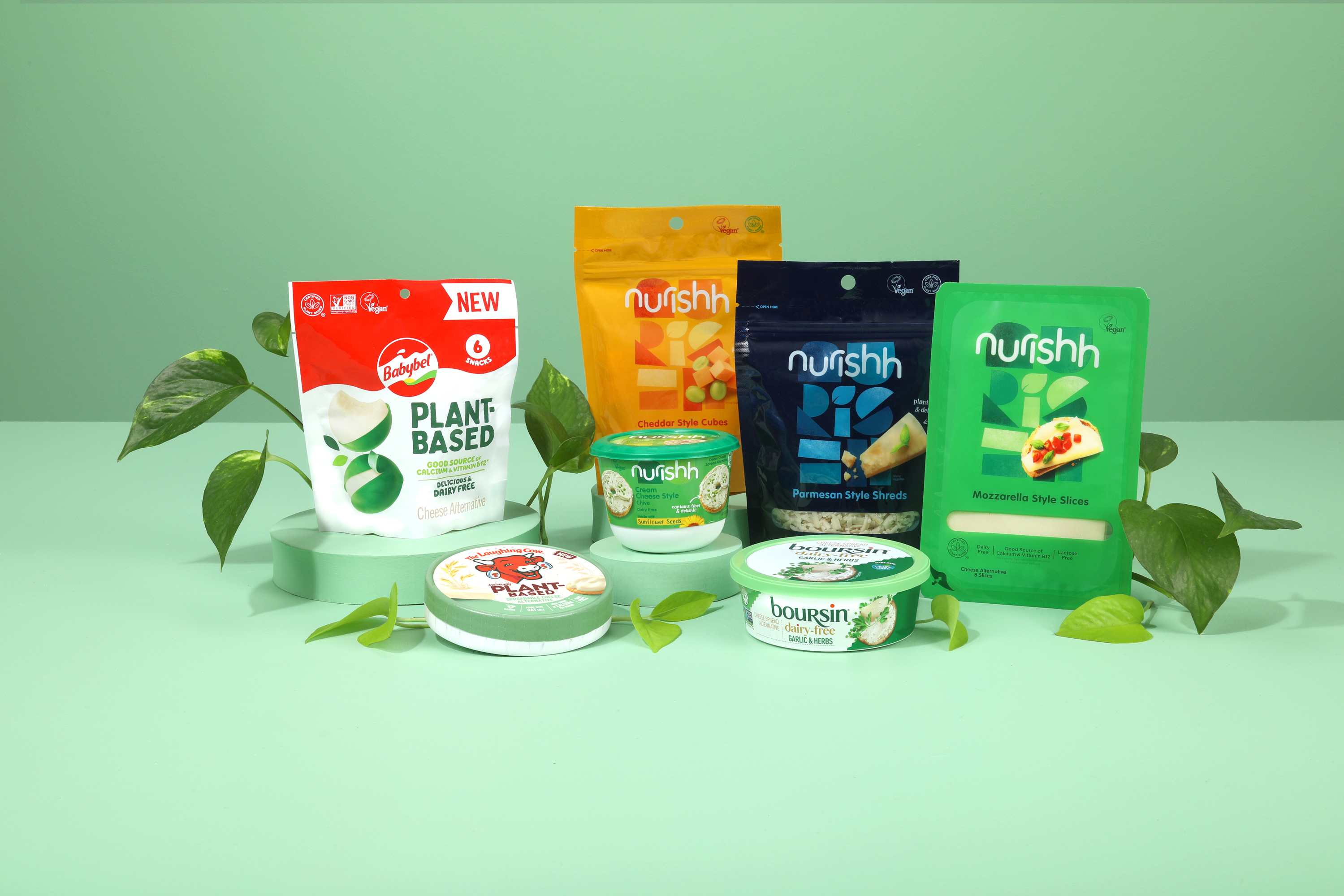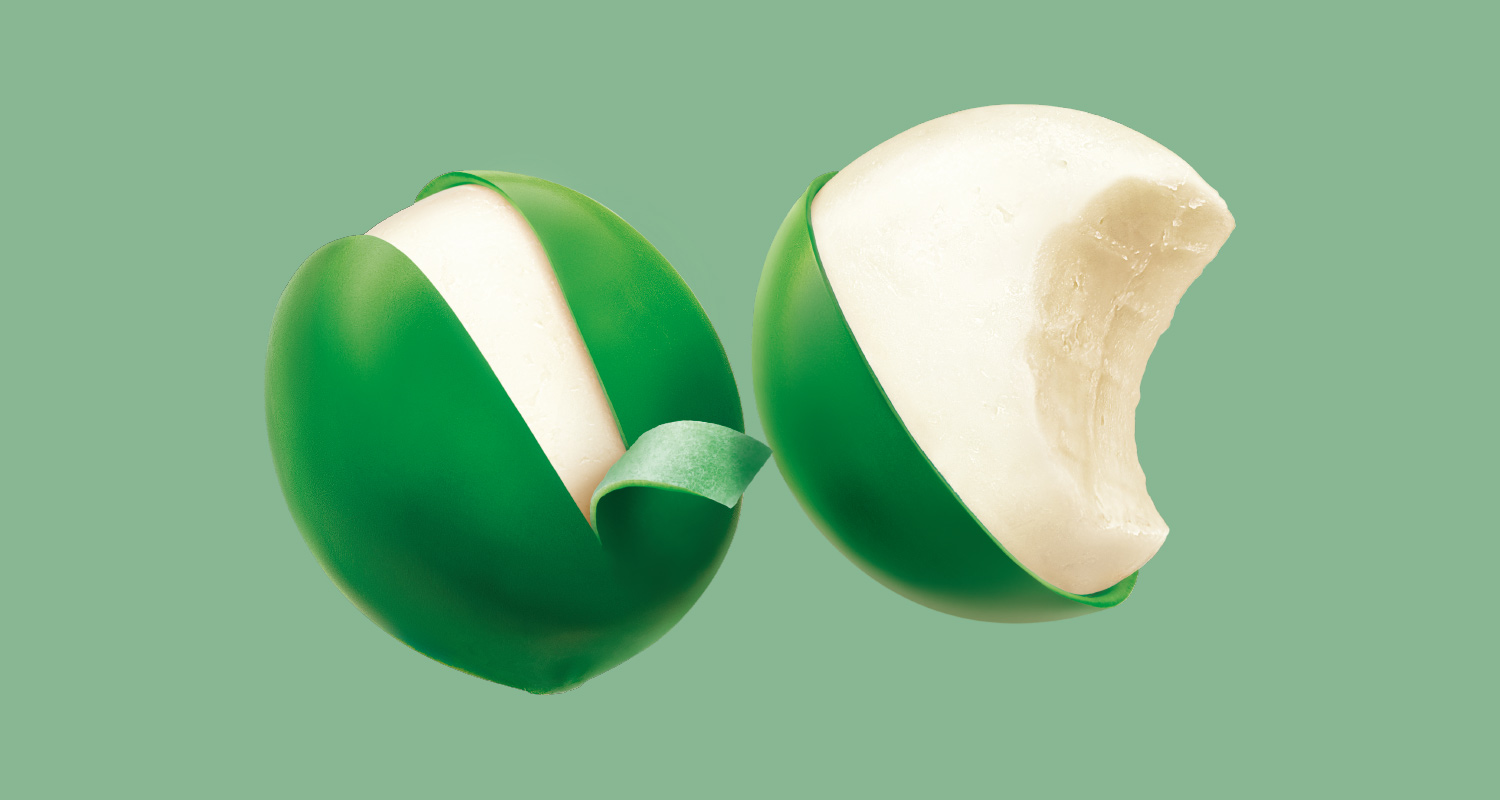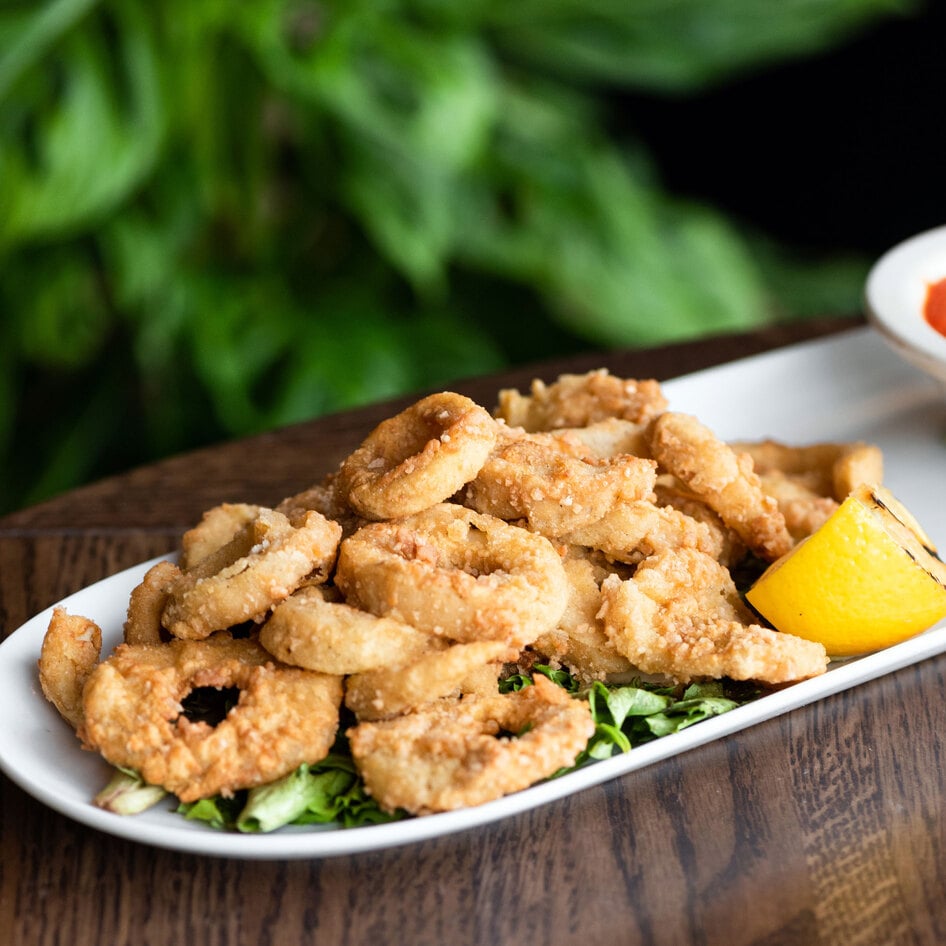French company Bel Group is known worldwide for its popular cheese brands such as Boursin, The Laughing Cow, and Babybel, and up until recently, the family-owned brand has been making its dairy products in more or less the same way for approximately 150 years. However, in the modern era—as the climate crisis rages on, consumers search for animal-free products, and the human population continues to grow—Bel Group is exploring a variety of options to help improve its whole range of products.
As a big step in driving this innovation, Bel Group recently announced a strategic partnership with Delaware-based Superbrewed Food, a company that creates high-quality postbiotic protein with the help of fermentation. The company sources microflora from the gut microbiome which undergoes an anaerobic (without the presence of oxygen) fermentation process to make this animal-free protein, which has no known allergens and packs a nutritional punch while using far fewer resources than traditional dairy production.
Bel Group Research and Application Director, Anne Pitkowski, is a protein specialist and has worked as a food scientist for 18 years. She is currently leading innovation in this space at Bel Group, working to solve different challenges to support Bel’s mission in bringing healthier and more sustainable cheeses to consumers. “The challenge is so important that we really need to screen everything that exists on the market,” Pitowski told VegNews. “There are so many new technologies emerging today and we are very enthusiastic to evaluate all of them.”
When it comes to Superbrewed’s protein, Pitkowski sees vast potential in how it can be used to transform the brand’s portfolio across the board, in both dairy and non-dairy applications. “Alternative protein is really key because it’s a plus for us to really bring good nutrition and accessibility and with an approach that is really sustainable,” Pitkowski said. “In my position, we are really looking for all these types of solutions to serve our missions at Bel. This is a fantastic ingredient to prepare tomorrow’s solutions.”
 Superbrewed Food
Superbrewed Food
A postbiotic protein with the potential to transform dairy
In addition to plant-based and cell-based protein, microbial fermentation is emerging as a major pillar in alternative protein production that is far less resource intensive than animal agriculture. Companies in this space source microbes from various places, including geothermal geysers in Yellowstone National Park—where the building blocks of Nature’s Fynd, another company in this space, were found.
And Superbrewed’s postbiotic protein has a unique source, as well. CEO and founder Bryan Tracy, PhD—an expert in genetic engineering and bacterial fermentation—is deeply interested in the function of the gut microbiome in transforming plant matter into protein. This process occurs within herbivorous animals after every meal. “Animals are bad middle men to do conversion of plant-based ingredients into what we think is a more nutritional set of foods,” Tracy told VegNews about traditional animal agriculture. “We can be more clever.”
While Superbrewed’s key microbe is present in the human microbiome, it is more plentiful in herbivorous animals and the company isolated and extracted its initial microbes from the litter (or feces) of a healthy poultry flock that was free from antibiotics. No birds were harmed in this process and the microflora now self-propagates in Superbrewed’s fermenters with no animal inputs, allowing it to create a highly functional and nutritious vegan protein with vast potential.
 Superbrewed Food
Superbrewed Food
“The majority of the nutrition that we live off of is not the food that we eat but it’s what that food that we eat gets converted into by our microbiomes. And what it converts it into is the postbiotics we are consuming,” Tracy said. “We’re growing a gut microbiome organism in a controlled system and we don’t adulterate it. We preserve it in its most normal, whole-food form.”
Holding a lifelong interest in creating more equitable foods and systems, Tracy explains that making protein in this way—which relies on the same fermentation process as beer-, kimchi-, and yogurt-making—is more affordable and versatile than traditional protein production. “What better place to find a protein that nourishes nutrition than inside of a digestive microbiome because we’re eating them nonetheless,” Tracy said. “These have been playing an evolutionary role in the success of human and animal kind over millions of years.”
With Superbrewed, Tracy is looking beyond the (not so simple) task of replacing animal proteins. Instead, he wants to provide consumers with a better choice in all aspects, including nutrition, functionality, and sustainability. “If you want a greater population to turn over into this space, you can’t just give them a replacement that is the same. Give them something better,” he said. “The iPhone didn’t replace the flip phone because it flipped better. It gives you more features and more functionality.”
Delivered to clients as a white, shelf-stable powder, Superbrewed protein’s unique features are a whopping 85-percent protein content and the remaining 15 percent is packed with all of the essential amino acids, vitamins, and minerals. “We have the most vitamin B12 of any known protein that I am aware of,” Tracy said, with a two tablespoon serving of Superbrewed’s protein amounting to the daily recommended intake of B12. “The vegan consumer deserves better.”
 Bel Group
Bel Group
Babybel, Boursin, and The Laughing Cow vegan cheeses
Bel Group is in the middle of releasing plant-based versions of all of its popular cheeses, including Boursin, Babybel, and The Laughing Cow. For Boursin, Bel Group worked with American brand Follow Your Heart to develop its vegan version which launched in stores, including Trader Joe’s, in 2020.
Last year, the French company released its Plant-Based Babybel cheeses, first in Europe and then in the United States, which it wrapped in green wax much like its classic version but easier to identify as plant-based. Currently, Bel Brands is working to release a vegan version of The Laughing Cow—its pièce de résistance snacking wedges—sometime in 2023 and has already experimented with an oat milk base.
Bel Group’s new strategic partnership with Superbrewed brings additional possibilities to its plant-based portfolio, which also includes its own vegan cheese brand Nurishh. Here, Bel Group sees major potential in increasing the nutritional profile of its vegan cheeses with the use of Superbrewed’s protein, a 30-gram serving of which meets the US Food and Drug Administration’s requirements for being a “good source” of five B-vitamins, including a full day’s supply of B12, and a “good source” of six essential minerals, such as iron, phosphorus, and magnesium.
Further, since Superbrewed’s protein is neutral in taste, it solves any undesirable flavors that vegetable ingredients, such as pea protein, may impart. The ingredient also functions as a great emulsifier, which is important in cheese applications as they are made from mostly water and fat. “It also brings a creaminess and smooth mouthfeel,” Pitkowski confirms about the additional functional elements of the protein, explaining that this innovation has the potential to transform the texture of vegan cheese to be much more dairy-like.
 Bel Group
Bel Group
Ultimately, Bel Group sees Superbrewed’s protein as a multifaceted ingredient that can deliver benefits across its portfolio of products. Superbrewed will be ready to ship its innovative protein to Bel Group in the first half of 2023, at which point Bel Group can more extensively explore its usage in developing new, and perfecting existing, cheeses on a larger scale.
“We are really at the beginning of this story,” Pitkowski said. “Innovation and renovation is continuous at Bel so as soon as we are able to improve the composition we will improve our mini Babyel and the cheese that will come. And it can also be integrated into Nurishh.”
For the latest vegan news, read:
Lizzo Blazes Through ‘Hot Ones’ With Help From Daring’s Vegan Chicken
Vegans Who Lift Weights Have Better Bone Strength, New Study Finds
Will This Cultured Palm Oil Be the Solution To Saving the Orangutans?
JUMP TO ... Latest News | Recipes | Guides | Health | Shop

.jpg?sha=dc0cc5fa5ea3d201)



.jpg?sha=e311947e77bac95d)



